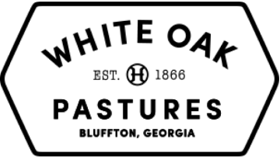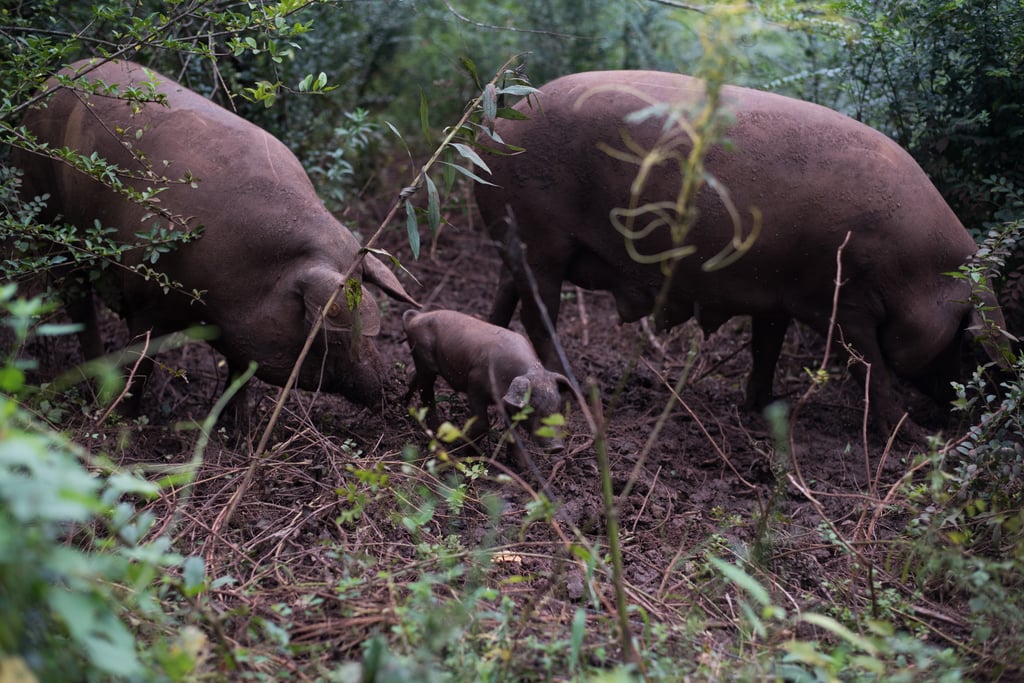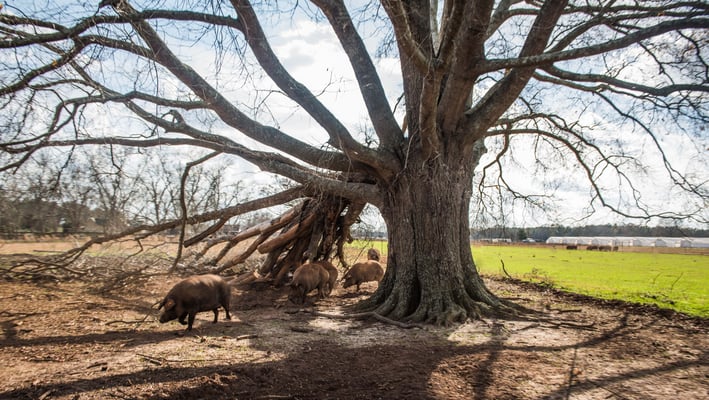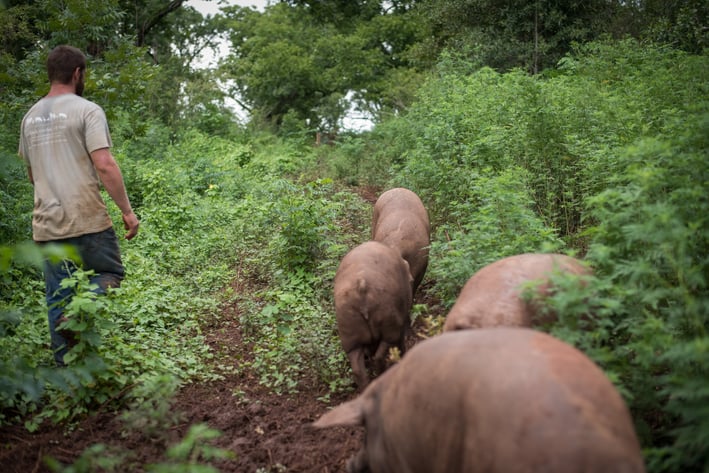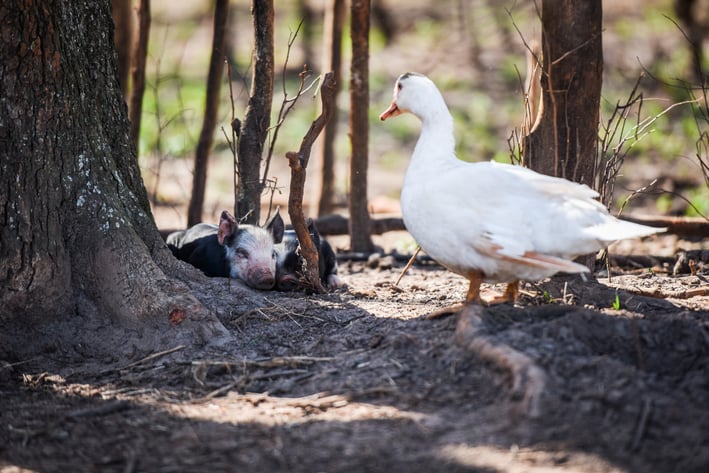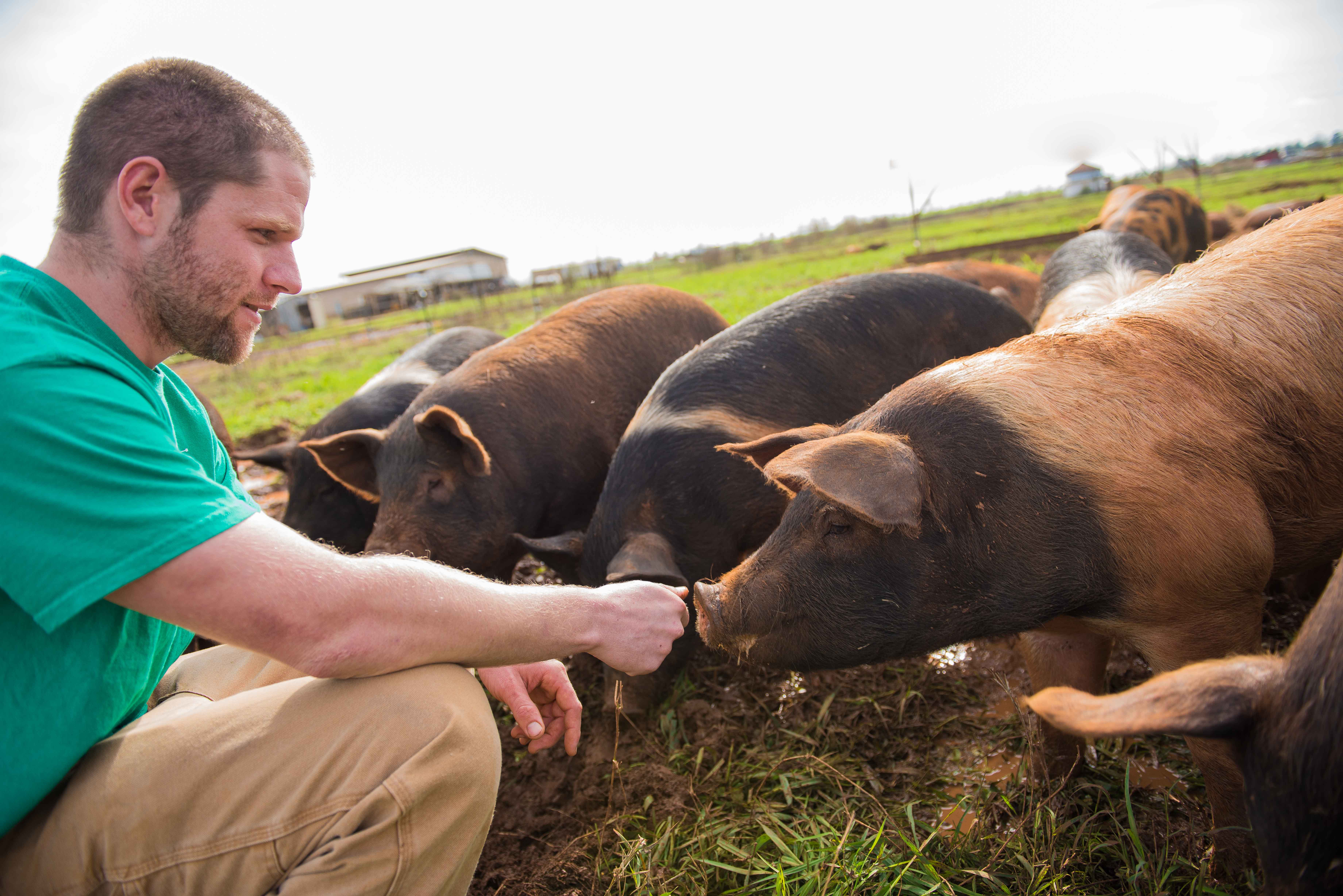White Oak Pastures has based our land stewardship on Savory Institute's Savannah paradigm. In this system, the ideal composition is 20% shade, 80% pasture. We are working with our Iberian and heritage hogs to create the farm’s 20% shade, silvopasture ecosystem. Our woody polyculture will include trees such as oak, pecan, fig, pear and olive trees. The tree density will be about 40 trees per acre. This is not a dense canopy and will allow sunshine to filter through so that our livestock can forage a pasture understory. The dehesa forests in Spain on which we hope to model our Iberian pastures have a tree density of 85-120/hectare.
Our Hog Production Manager Aaron Lorenz explains the specific role our pigs play in establishing savannah ecosystems:
" Hogs love fresh pasture and cool woods about equally, and nothing as much as a nice cool pond to wallow in. As omnivores, they can get in touch with many levels of an ecosystem, and can influence that ecosystem in a variety of ways.
The rooting behavior of our hogs disturbs the soil and allows for the germination of new seeds, especially the forage cover crops we plant that will become food for birds, bees, cattle, sheep, goats and especially hogs.
Our hogs clear out underbrush in forests and scrub on pasture, allowing more productive species of vegetation to thrive, such as our pasture grasses and legumes, as well as the young trees that will eventually be mainstays of White Oak Pastures' savanna style ecosystems, all the while depositing manure into the soil that will become food for the billions of microorganisms that lie at the foundation of every terrestrial ecosystem.
Our hogs have an important role in the ecosystems of White Oak Pastures. They clear land and create space for other species to flourish, from cattle to crickets, and birds to bees. Plants from grasses and the sapling that grows into the tallest pecan tree 100 years from now may have hogs to thank for being able to claim their place in a healthy and diverse ecosystem."
